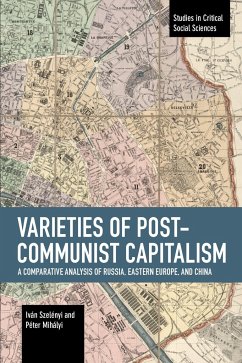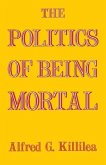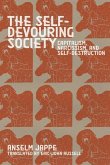Iván Szelényi, Péter Mihályi
Varieties of Post-Communist Capitalism
A Comparative Analysis of Russia, Eastern Europe and China
Iván Szelényi, Péter Mihályi
Varieties of Post-Communist Capitalism
A Comparative Analysis of Russia, Eastern Europe and China
- Broschiertes Buch
- Merkliste
- Auf die Merkliste
- Bewerten Bewerten
- Teilen
- Produkt teilen
- Produkterinnerung
- Produkterinnerung
Surveying Putin 's Russia and contemporary China, this volume theorized forms of capitalism that emerge in post-communist societies.
Andere Kunden interessierten sich auch für
![Capitalism and Covid-19 Volume 1 Capitalism and Covid-19 Volume 1]() Noel ChellanCapitalism and Covid-19 Volume 130,99 €
Noel ChellanCapitalism and Covid-19 Volume 130,99 €![Capitalism and Covid-19 Volume 2 Capitalism and Covid-19 Volume 2]() Noel ChellanCapitalism and Covid-19 Volume 230,99 €
Noel ChellanCapitalism and Covid-19 Volume 230,99 €![From Online Platforms to Digital Monopolies From Online Platforms to Digital Monopolies]() Jonas C L ValenteFrom Online Platforms to Digital Monopolies42,99 €
Jonas C L ValenteFrom Online Platforms to Digital Monopolies42,99 €![The Politics of Being Mortal The Politics of Being Mortal]() Alfred G KillileaThe Politics of Being Mortal18,99 €
Alfred G KillileaThe Politics of Being Mortal18,99 €![The Self-Devouring Society The Self-Devouring Society]() Anselm Jape JappeThe Self-Devouring Society22,99 €
Anselm Jape JappeThe Self-Devouring Society22,99 €![Against Capitalism and Bureaucracy Against Capitalism and Bureaucracy]() Manuel KellnerAgainst Capitalism and Bureaucracy48,99 €
Manuel KellnerAgainst Capitalism and Bureaucracy48,99 €![Re-Enchanting the World Re-Enchanting the World]() Silvia FedericiRe-Enchanting the World22,99 €
Silvia FedericiRe-Enchanting the World22,99 €-
-
-
Surveying Putin 's Russia and contemporary China, this volume theorized forms of capitalism that emerge in post-communist societies.
Hinweis: Dieser Artikel kann nur an eine deutsche Lieferadresse ausgeliefert werden.
Hinweis: Dieser Artikel kann nur an eine deutsche Lieferadresse ausgeliefert werden.
Produktdetails
- Produktdetails
- Verlag: Haymarket Books
- Seitenzahl: 243
- Erscheinungstermin: 24. November 2020
- Englisch
- Abmessung: 227mm x 152mm x 15mm
- Gewicht: 366g
- ISBN-13: 9781642593662
- ISBN-10: 1642593664
- Artikelnr.: 58815300
- Herstellerkennzeichnung
- Libri GmbH
- Europaallee 1
- 36244 Bad Hersfeld
- gpsr@libri.de
- Verlag: Haymarket Books
- Seitenzahl: 243
- Erscheinungstermin: 24. November 2020
- Englisch
- Abmessung: 227mm x 152mm x 15mm
- Gewicht: 366g
- ISBN-13: 9781642593662
- ISBN-10: 1642593664
- Artikelnr.: 58815300
- Herstellerkennzeichnung
- Libri GmbH
- Europaallee 1
- 36244 Bad Hersfeld
- gpsr@libri.de
Iván Szelényi is Emeritus Professor of Sociology and Political Science at Yale University and at New York University (Abu Dhabi). He has a long standing interest in class formation under state socialism, and researched the origins of the new entrepreneurial class. Peter Mihályi is Professor at the Department of Macroeconomics, Corvinus University of Budapest, and Visiting Professor at the Central European University, Hungary. In the 1990s, he served -- inter alia -- as Deputy Government Commissioner for Privatization and Deputy Minister of Finance.
Preface
List of Figures, Tables and Boxes
1 Introduction
2 Legitimacy under Communism and Post-communism: Theoretical Background
2.1 When Is a Rule 'Illegitimate '?
2.2 The Three Ideal Types of Legitimate Authority (and the Fourth)
2.3 Various Types of Traditional Authority
3 Varieties of Communism
3.1 Introductory Remarks
3.2 What Is/Was Communism? The Political Economy of the Classical System
3.3 Systems of Domination under Various Types of Communism
3.4 Reforming the Communist Economy
3.5 The Governance of State-Owned Enterprises
3.6 Stratification Regimes under Various Communist Formations
4 Reinterpretation of Inequalities and Rent-Seeking in Advanced Market
Economie
4.1 Profits versus Rents
4.2 Changing and New Forms of Rents
4.3 Institutional Consequences of Rent
4.4 Class Reproduction through the Accumulation of Human and Cultural
Capital
4.5 The Counter-Revolution of Nation States in the Name of More Equality
5 The Divergent Pathways Out of Communism
5.1 Introductory Comments: Distinguishing Three Pathways to Capitalisms
5.2 The Liberal Model
5.3 The Patrimonial Model
5.4 Market Socialism or Capitalism from Below?
5.5 The Structure of Post-communist Societies during the First Phases of
Transformation
6 Consolidation and Partial Re-convergence of Post-communist Pathways?
6.1 Eastern European Liberal Democracies: Successes and Crises, 2000--2010
6.2 The New Legitimacy and a New Political Economy: Illiberal Managed
Democracy and Prebendalism
6.3 The Ideology of Post-communist Traditionalism
6.4 Liberal-Democratic Ways to Capitalism in Eastern Europe: The Emergence
of Prebendalism?
6.5 Is China on the Road to Putinism?
6.6 Social Structure in Post-communist Societies in or on the Way to
Prebendalism
7 Conclusions: Is Putinism a Model for Post-communism?
Bibliography
Name Index
Subject Index
List of Figures, Tables and Boxes
1 Introduction
2 Legitimacy under Communism and Post-communism: Theoretical Background
2.1 When Is a Rule 'Illegitimate '?
2.2 The Three Ideal Types of Legitimate Authority (and the Fourth)
2.3 Various Types of Traditional Authority
3 Varieties of Communism
3.1 Introductory Remarks
3.2 What Is/Was Communism? The Political Economy of the Classical System
3.3 Systems of Domination under Various Types of Communism
3.4 Reforming the Communist Economy
3.5 The Governance of State-Owned Enterprises
3.6 Stratification Regimes under Various Communist Formations
4 Reinterpretation of Inequalities and Rent-Seeking in Advanced Market
Economie
4.1 Profits versus Rents
4.2 Changing and New Forms of Rents
4.3 Institutional Consequences of Rent
4.4 Class Reproduction through the Accumulation of Human and Cultural
Capital
4.5 The Counter-Revolution of Nation States in the Name of More Equality
5 The Divergent Pathways Out of Communism
5.1 Introductory Comments: Distinguishing Three Pathways to Capitalisms
5.2 The Liberal Model
5.3 The Patrimonial Model
5.4 Market Socialism or Capitalism from Below?
5.5 The Structure of Post-communist Societies during the First Phases of
Transformation
6 Consolidation and Partial Re-convergence of Post-communist Pathways?
6.1 Eastern European Liberal Democracies: Successes and Crises, 2000--2010
6.2 The New Legitimacy and a New Political Economy: Illiberal Managed
Democracy and Prebendalism
6.3 The Ideology of Post-communist Traditionalism
6.4 Liberal-Democratic Ways to Capitalism in Eastern Europe: The Emergence
of Prebendalism?
6.5 Is China on the Road to Putinism?
6.6 Social Structure in Post-communist Societies in or on the Way to
Prebendalism
7 Conclusions: Is Putinism a Model for Post-communism?
Bibliography
Name Index
Subject Index
Preface
List of Figures, Tables and Boxes
1 Introduction
2 Legitimacy under Communism and Post-communism: Theoretical Background
2.1 When Is a Rule 'Illegitimate '?
2.2 The Three Ideal Types of Legitimate Authority (and the Fourth)
2.3 Various Types of Traditional Authority
3 Varieties of Communism
3.1 Introductory Remarks
3.2 What Is/Was Communism? The Political Economy of the Classical System
3.3 Systems of Domination under Various Types of Communism
3.4 Reforming the Communist Economy
3.5 The Governance of State-Owned Enterprises
3.6 Stratification Regimes under Various Communist Formations
4 Reinterpretation of Inequalities and Rent-Seeking in Advanced Market
Economie
4.1 Profits versus Rents
4.2 Changing and New Forms of Rents
4.3 Institutional Consequences of Rent
4.4 Class Reproduction through the Accumulation of Human and Cultural
Capital
4.5 The Counter-Revolution of Nation States in the Name of More Equality
5 The Divergent Pathways Out of Communism
5.1 Introductory Comments: Distinguishing Three Pathways to Capitalisms
5.2 The Liberal Model
5.3 The Patrimonial Model
5.4 Market Socialism or Capitalism from Below?
5.5 The Structure of Post-communist Societies during the First Phases of
Transformation
6 Consolidation and Partial Re-convergence of Post-communist Pathways?
6.1 Eastern European Liberal Democracies: Successes and Crises, 2000--2010
6.2 The New Legitimacy and a New Political Economy: Illiberal Managed
Democracy and Prebendalism
6.3 The Ideology of Post-communist Traditionalism
6.4 Liberal-Democratic Ways to Capitalism in Eastern Europe: The Emergence
of Prebendalism?
6.5 Is China on the Road to Putinism?
6.6 Social Structure in Post-communist Societies in or on the Way to
Prebendalism
7 Conclusions: Is Putinism a Model for Post-communism?
Bibliography
Name Index
Subject Index
List of Figures, Tables and Boxes
1 Introduction
2 Legitimacy under Communism and Post-communism: Theoretical Background
2.1 When Is a Rule 'Illegitimate '?
2.2 The Three Ideal Types of Legitimate Authority (and the Fourth)
2.3 Various Types of Traditional Authority
3 Varieties of Communism
3.1 Introductory Remarks
3.2 What Is/Was Communism? The Political Economy of the Classical System
3.3 Systems of Domination under Various Types of Communism
3.4 Reforming the Communist Economy
3.5 The Governance of State-Owned Enterprises
3.6 Stratification Regimes under Various Communist Formations
4 Reinterpretation of Inequalities and Rent-Seeking in Advanced Market
Economie
4.1 Profits versus Rents
4.2 Changing and New Forms of Rents
4.3 Institutional Consequences of Rent
4.4 Class Reproduction through the Accumulation of Human and Cultural
Capital
4.5 The Counter-Revolution of Nation States in the Name of More Equality
5 The Divergent Pathways Out of Communism
5.1 Introductory Comments: Distinguishing Three Pathways to Capitalisms
5.2 The Liberal Model
5.3 The Patrimonial Model
5.4 Market Socialism or Capitalism from Below?
5.5 The Structure of Post-communist Societies during the First Phases of
Transformation
6 Consolidation and Partial Re-convergence of Post-communist Pathways?
6.1 Eastern European Liberal Democracies: Successes and Crises, 2000--2010
6.2 The New Legitimacy and a New Political Economy: Illiberal Managed
Democracy and Prebendalism
6.3 The Ideology of Post-communist Traditionalism
6.4 Liberal-Democratic Ways to Capitalism in Eastern Europe: The Emergence
of Prebendalism?
6.5 Is China on the Road to Putinism?
6.6 Social Structure in Post-communist Societies in or on the Way to
Prebendalism
7 Conclusions: Is Putinism a Model for Post-communism?
Bibliography
Name Index
Subject Index








